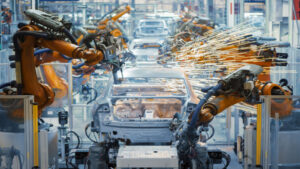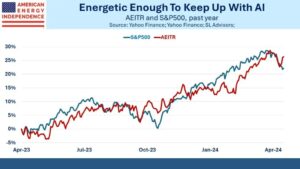Japan’s rise as a major player in the global automotive industry can be traced back to the 1950s and 60s. After World War II, the country was in dire need of rebuilding its economy, and the government saw the automotive industry as a key sector for growth.
In the early years, Japanese carmakers focused on producing small, fuel-efficient vehicles that were well-suited to the country’s congested roads and limited budgets. Companies like Toyota and Nissan were able to establish a strong reputation for quality and reliability, and their exports gradually gained popularity in other markets around the world.
One of the key factors that contributed to Japan’s success in the automotive industry was its focus on continuous improvement and innovation, a philosophy known as “kaizen”. This approach emphasised the importance of making constant, incremental improvements to products and processes, and it helped Japanese carmakers stay ahead of the curve in terms of efficiency and quality.
Another important factor was the strong collaboration between Japanese carmakers and their suppliers, which allowed for greater integration of the supply chain and more efficient production processes. This, combined with the use of advanced automation technologies, made Japanese cars highly competitive in terms of cost and quality.
Support also came from the government in the form of tax breaks for carmakers and investment in infrastructure and transportation networks.
Today, however, the automotive industry is at an inflection point. Electrification is creating the same disruption in cars as digitalisation did in the entertainment industry. And just like new entrants, such as Netflix, forced the incumbents to innovate quickly to survive, the rapidly emerging Chinese automotive industry is challenging behemoths from Japan.
The Chinese challenge
Some people say BYD is, or could become, the Toyota of electric vehicles (EVs). BYD is establishing itself rapidly in its local market. Tax incentives from the Chinese government for consumers buying EVs was a major contributor in the country’s EV growth in 2022. Additional support from the government is coming in the form of a rollout of charging infrastructure, a key component of China’s 14th 5-year plan, issued in December 2022.
In November 2022, global plug-in electric vehicle sales hit a new record high with more than 1 million new registrations during the month1. The table below shows the top 10 vehicles in terms of registrations. Notice the dominance of BYD models.
Figure: 1,060,000 new EVs were registered worldwide in November 2022. Among the top 10 were:
| Car model | Number of registrations |
| 1. Tesla Model Y | 105,374 |
| 2. BYD Song Plus (BEV + PHEV) | 64,184 |
| 3. Tesla Model 3 | 45,819 |
| 4. Wuling Hong Guang MINI EV | 31,985 |
| 5. BYD Han (BEV + PHEV) | 31,979 |
| 6. BYD Yuan Plus (aka Atto 3) | 29,316 |
| 7. BYD Dolphin | 26,103 |
| 8. BYD Qin Plus (BEV+PHEV) | 25,499 |
| 9. BYD Tang (BEV + PHEV) | 19,967 |
| 10. Volkswagen ID.4 | 16,637 |
Source: Inside EVs, January 2023. BEV = Battery Electric Vehicle. PHEV = Plug-in Hybrid Electric Vehicle.
If the integration of the supply chain was key to the success of Japanese carmakers in the past, this may be even easier for Chinese original equipment manufacturers (OEMs), given China’s dominance in the most critical input to an electric vehicle, the battery. According to Bloomberg New Energy Finance, China’s share of global lithium-ion battery production capacity stood at 77% in 2022. Six out of the top 10 battery manufacturers are currently headquartered in China. By 2027, total worldwide capacity is expected to increase eightfold, and China is likely to retain its dominance with a market share of 69%2.
Integration of batteries into the manufacturing of cars couldn’t be easier for BYD given it has evolved into an OEM from being a battery manufacturer originally. It was indeed the company’s battery credentials that lured Warren Buffett into investing in the company back in 2008.
The list of top sellers above also dispels the notion that BYD might be competing in different categories than Tesla. Take BYD’s Song Plus as an example, which is a cost-effective alternative to Tesla’s Model Y. For its lower price, it hardly compromises on technology or safety features. How the two models compare on looks is, of course, in the eye of the beholder.
In the past, Japanese producers like Toyota, Nissan, and Suzuki, among others, ventured abroad after establishing themselves in their local market. Similarly, BYD is now looking to expand its operations in Europe by setting up its own facility for production in the continent.
All is not lost for Japan
Toyota’s CEO, Akio Toyoda, grandson of the founder of Toyota Motors, Kiichiro Toyoda, recently announced that he will remain on the board but step down from his CEO role. His proclamation came days after he voiced his scepticism over battery electric vehicles being the answer to decarbonising road transport. In his statement, he suggested that other powertrains like hybrids and hydrogen fuel cells should also be considered – both technologies in which Toyota is playing a leading role. Nevertheless, it appears that the company decided it needed new leadership to galvanise its battery electric vehicle strategy. Upon stepping down and passing the baton to Koji Sato, from Toyota’s Lexus brand, Akio Toyoda acknowledged that the younger generation needed to lead the company in this new era of emerging technologies.
There are many reasons to remain constructive on Japan’s automotive industry. First, the experience of making cars built over decades cannot be disregarded. We have seen how quickly German manufacturers like Volkswagen, Mercedes, and BMW have started churning out electric models, maintaining the image of their brands while entering a new technology. Second, it is entirely possible that the future of automobility depends on a variety of powertrains. If Toyota can break new grounds with hydrogen fuel cells, it may give the company a commanding position in a relatively less explored market.
And, finally, you don’t have to be the first to the market when it comes to cars. You perhaps don’t even have to be among the first few. Arguably, cars are not like mobile phones, which have split the world of consumers into iPhone and Android users, and where players like Nokia, who refused to see the change, were left behind completely. With cars, when people are looking to make a purchase, they are more likely to explore a wider range of options than they would with mobile phones. This allows car companies to catch-up and enter the list of brands consumers are prepared to consider if they have an attractive option available that can compete with alternatives in the market.
The condition, of course, is that you innovate. And you do that fast. Kaizen. And we expect Japanese automakers will do that. But they will have to contend with China’s growing dominance in the space creating competition that wasn’t there in the past.
After all, when it comes to technology, leadership cannot be taken for granted.
Sources
1 Inside EVs, January 2023.
2 Source: Bloomberg New Energy Finance as summarised by Visual Capitalist on 19 January 2023.
—
Originally Posted February 22, 2023 – Is China the new Japan of the automotive industry?
Disclosure: WisdomTree Europe
This material is prepared by WisdomTree and its affiliates and is not intended to be relied upon as a forecast, research or investment advice, and is not a recommendation, offer or solicitation to buy or sell any securities or to adopt any investment strategy. The opinions expressed are as of the date of production and may change as subsequent conditions vary. The information and opinions contained in this material are derived from proprietary and non-proprietary sources. As such, no warranty of accuracy or reliability is given and no responsibility arising in any other way for errors and omissions (including responsibility to any person by reason of negligence) is accepted by WisdomTree, nor any affiliate, nor any of their officers, employees or agents. Reliance upon information in this material is at the sole discretion of the reader. Past performance is not a reliable indicator of future performance.
Please click here for our full disclaimer.
Jurisdictions in the European Economic Area (“EEA”): This content has been provided by WisdomTree Ireland Limited, which is authorised and regulated by the Central Bank of Ireland.
Jurisdictions outside of the EEA: This content has been provided by WisdomTree UK Limited, which is authorised and regulated by the United Kingdom Financial Conduct Authority.
Disclosure: Interactive Brokers
Information posted on IBKR Campus that is provided by third-parties does NOT constitute a recommendation that you should contract for the services of that third party. Third-party participants who contribute to IBKR Campus are independent of Interactive Brokers and Interactive Brokers does not make any representations or warranties concerning the services offered, their past or future performance, or the accuracy of the information provided by the third party. Past performance is no guarantee of future results.
This material is from WisdomTree Europe and is being posted with its permission. The views expressed in this material are solely those of the author and/or WisdomTree Europe and Interactive Brokers is not endorsing or recommending any investment or trading discussed in the material. This material is not and should not be construed as an offer to buy or sell any security. It should not be construed as research or investment advice or a recommendation to buy, sell or hold any security or commodity. This material does not and is not intended to take into account the particular financial conditions, investment objectives or requirements of individual customers. Before acting on this material, you should consider whether it is suitable for your particular circumstances and, as necessary, seek professional advice.










![[Gamma] Scalping Please [Gamma] Scalping Please](https://ibkrcampus.com/wp-content/smush-webp/2024/04/tir-featured-8-700x394.jpg.webp)
![[Gamma] Scalping Please [Gamma] Scalping Please](https://ibkrcampus.com/wp-content/uploads/2024/04/tir-featured-8-700x394.jpg)












